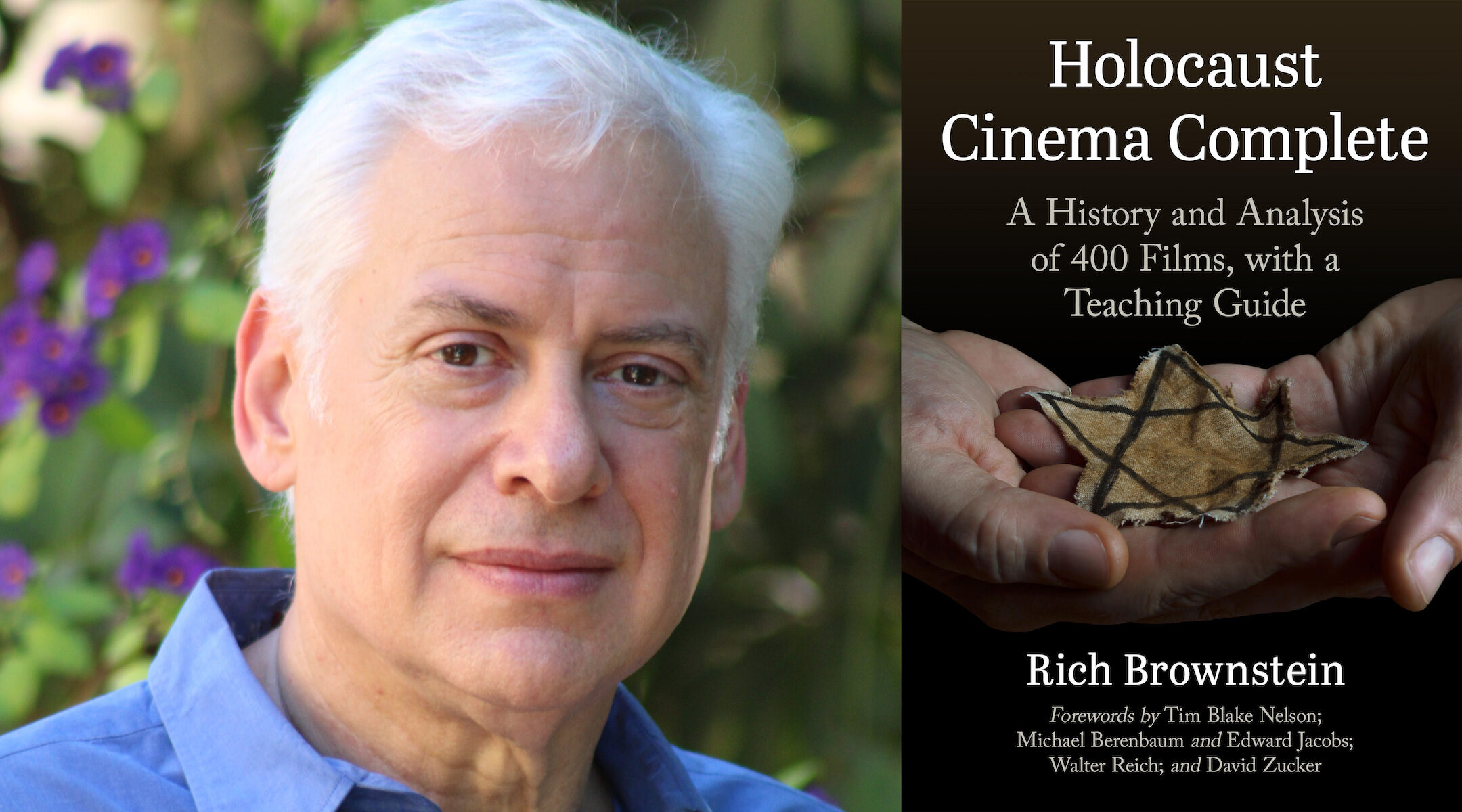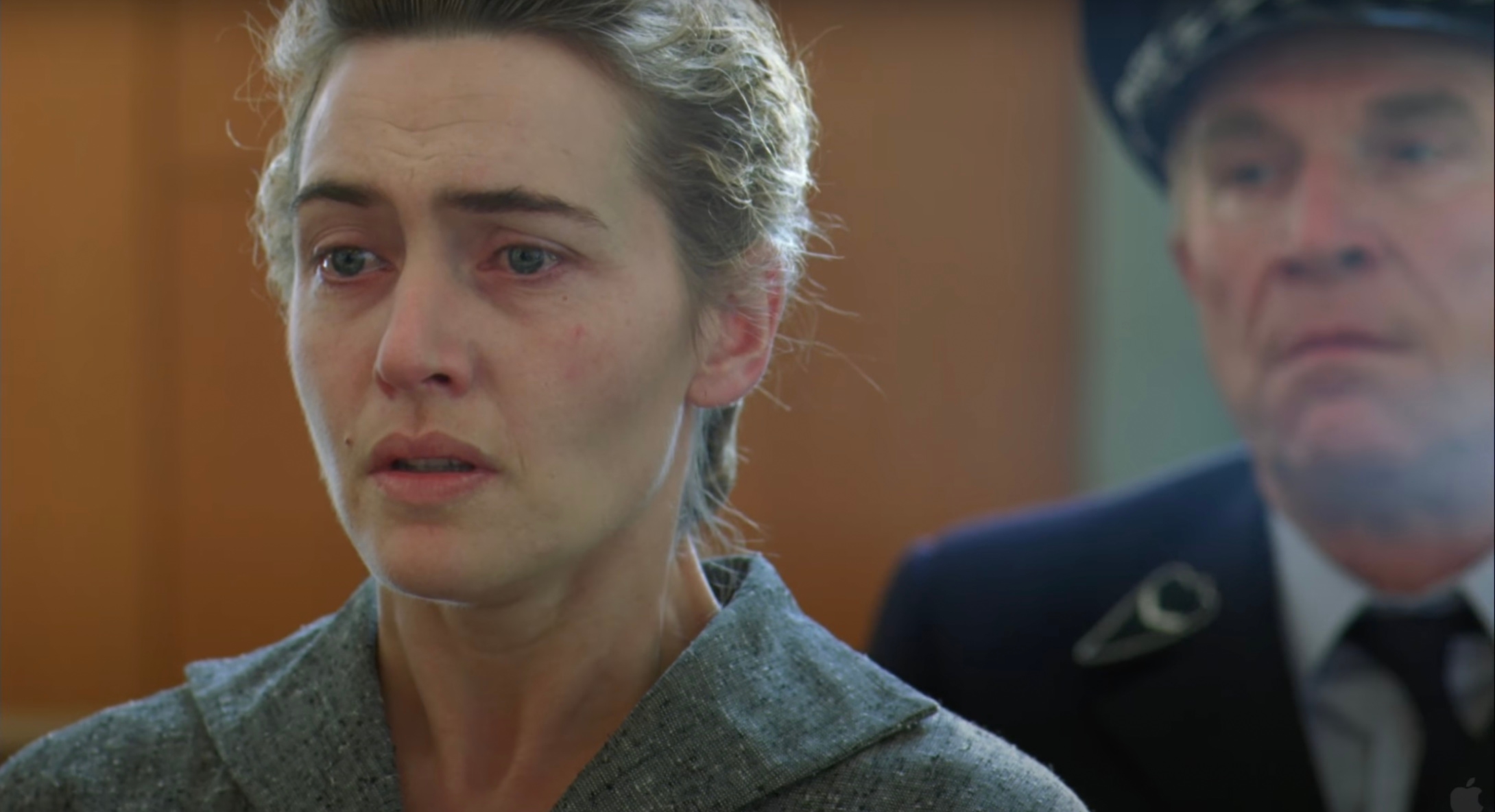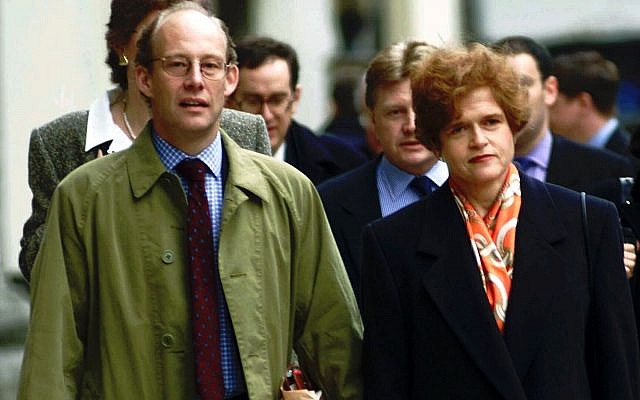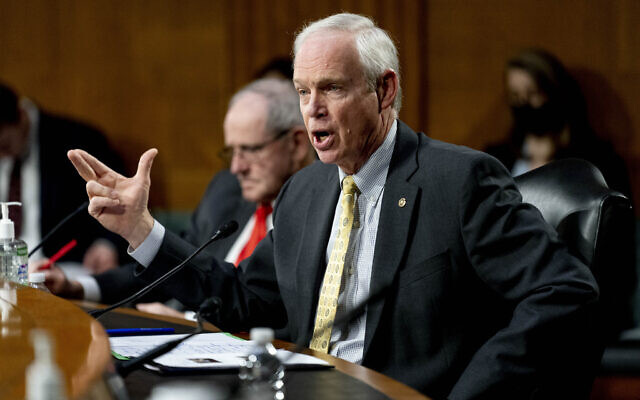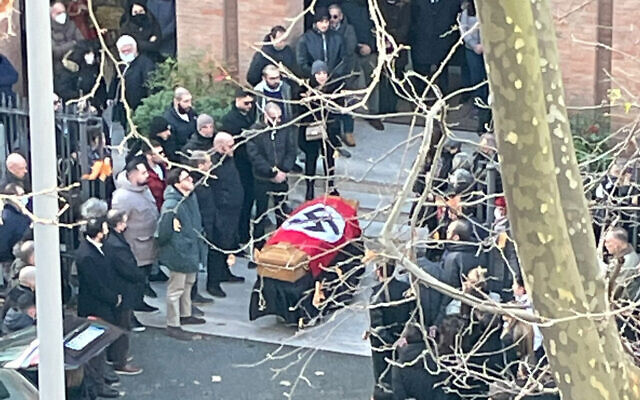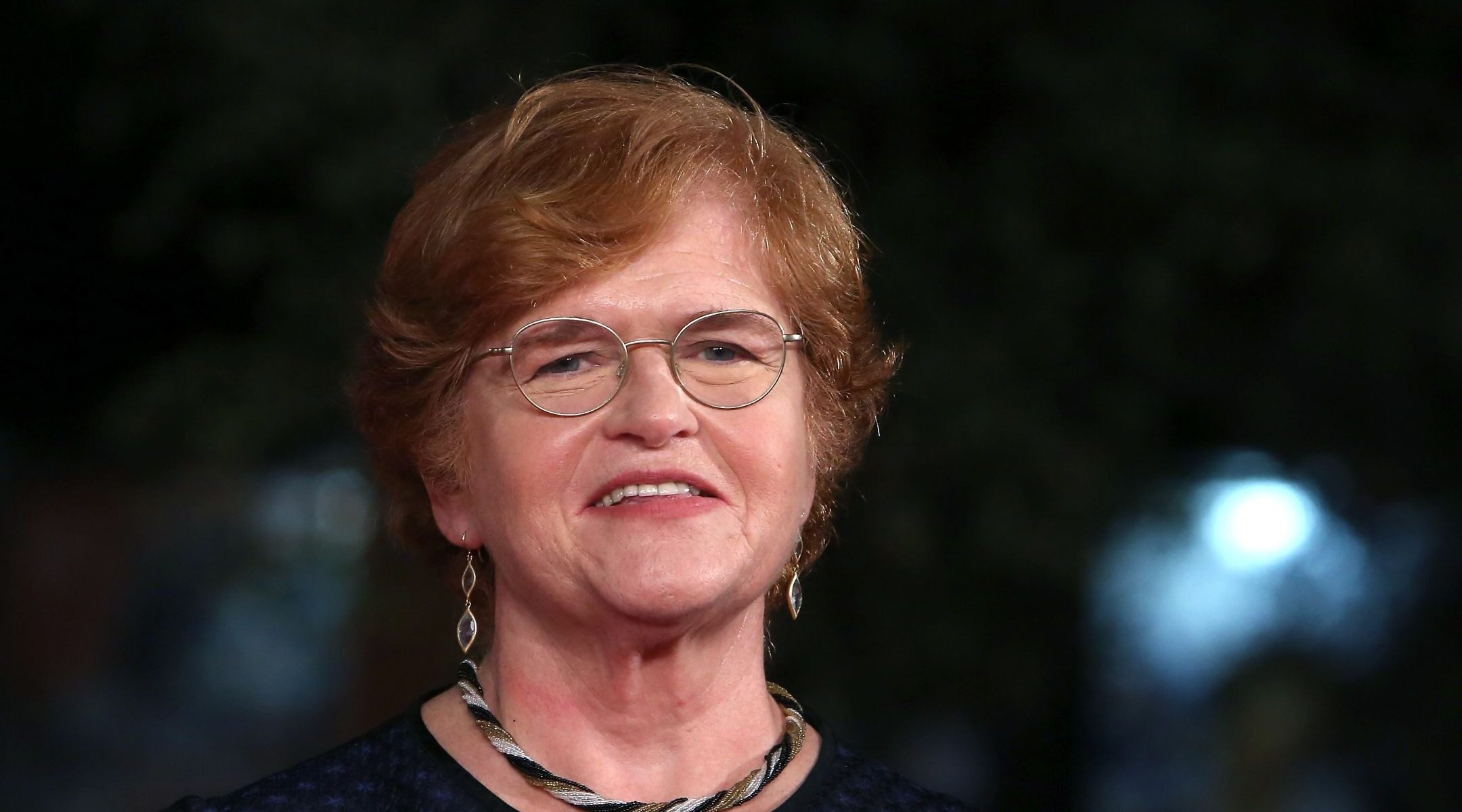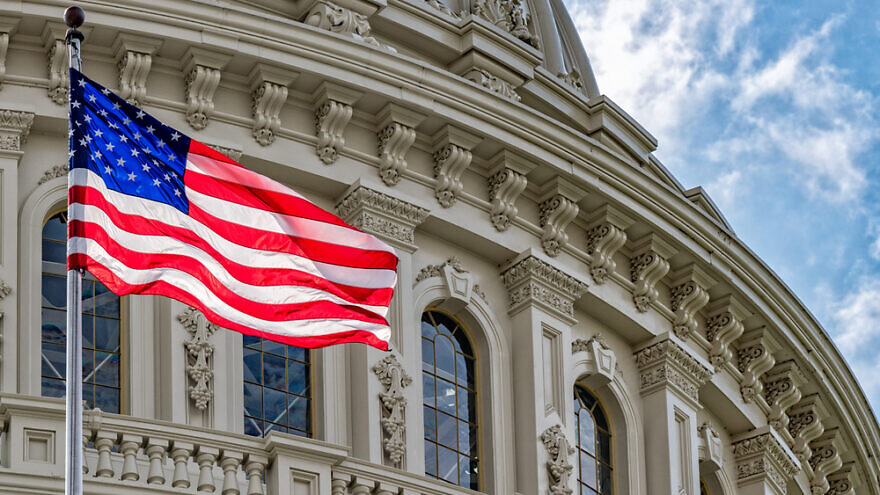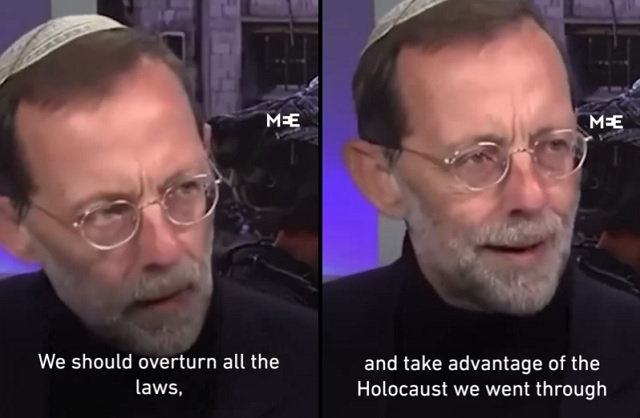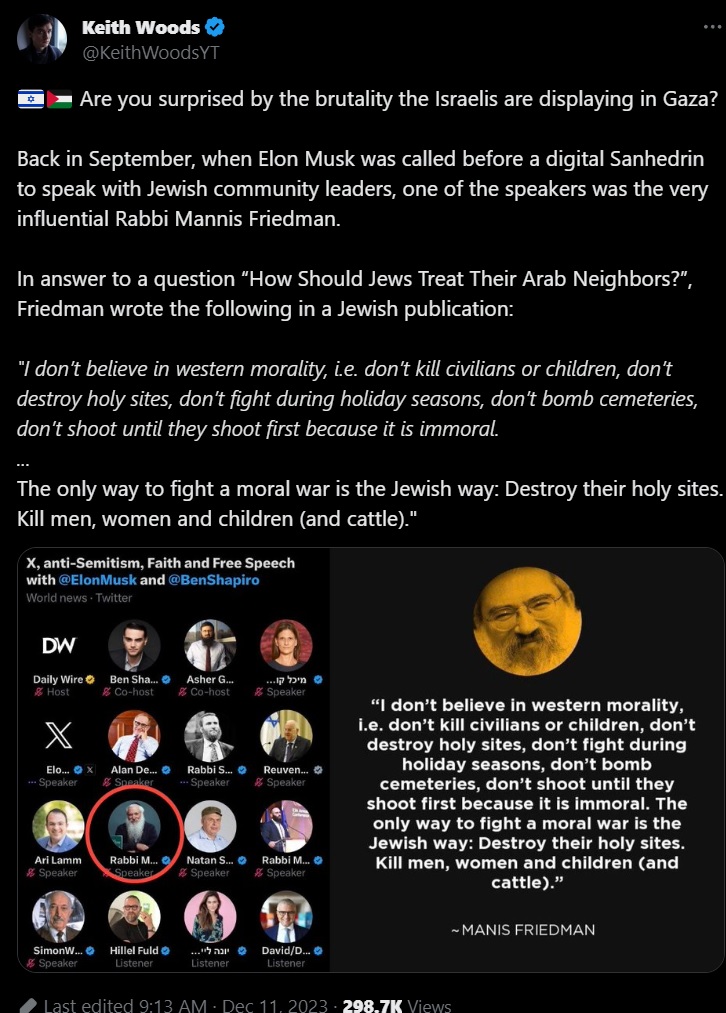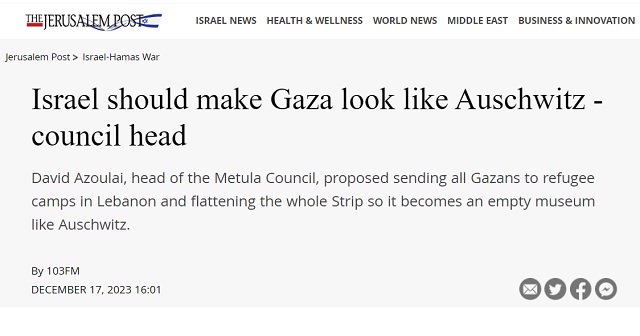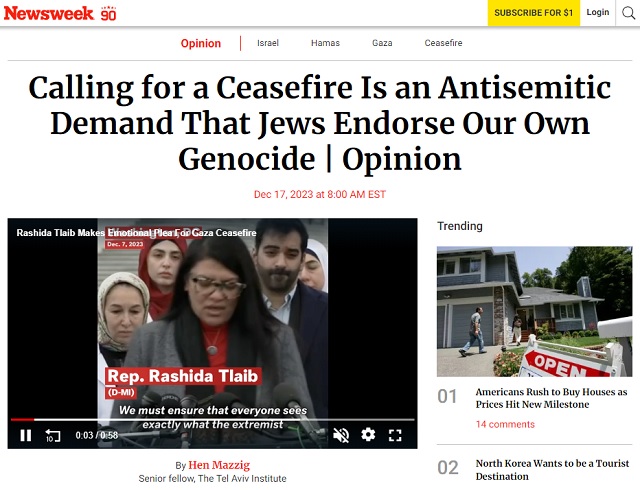Apollonian
Guest Columnist
Why the Holocaust Story Was Invented
John Wear
Link: https://www.inconvenienthistory.com/9/3/4881
Abstract
The genocide of European Jewry by National Socialist Germany is considered by many to be the most thoroughly documented event in human history. Tens of thousands of books, magazine, and newspaper articles have been written and numerous criminal trials have been conducted to document the mass extermination of European Jewry. The crimes of Germany against Jews are considered to be so uniquely evil that the term “the Holocaust” has been invented to describe the alleged genocide of European Jewry. I have been asked the questions: “Why was the Holocaust story invented? Who benefits from this falsification of history?” This article will answer these questions.
Justification for War with Germany
World War II was by far the bloodiest and most destructive war in human history. Many people wondered whether all of the death and destruction caused by the war had been necessary.
The so-called Holocaust was used by the Allies to demonize Germany and prove that their war effort was necessary to defeat such an evil nation.
With the liberation of Ohrdruf, Buchenwald and Dachau by the American army and the liberation of Bergen-Belsen by British troops, large groups of Western observers confronted the horrors of the German camps for the first time. The gruesome scenes of huge piles of dead bodies and emaciated and diseased surviving inmates were filmed and photographed for posterity by the U.S. Army Signal Corps. Prominent newsmen and politicians were flown in to Germany to see the harrowing evidence at the camps for themselves. The horrific scenes in the German camps were used by the Allies to justify their participation in the war.[1]
Jewish historian Robert Jan van Pelt writes:[2]
“To the Allies, the discovery of the camps proved a final justification of their war effort. In 1940, Churchill had proclaimed that a Nazi victory would bring “a new Dark Age made more sinister by perverted science.” The liberation of the camps proved that Churchill had not exaggerated the danger. And even though Auschwitz had been liberated by the Russians, the English and Americans heard many stories about that camp.”
Establishment of Israel
The Holocaust story has also been used to justify the creation of the State of Israel. Simon Wiesenthal writes:[3]
“The creation of Israel was the only possible and the only correct reaction to Auschwitz. There had to be a country in the world where the Jews were the landlords instead of tolerated guests, a place of refuge in the truest meaning of the word, even for Jews who live in other countries.”
David Ben-Gurion stated at the beginning of World War II that the war should end by giving the Zionists their own state. After the war, Ben-Gurion and other Israeli leaders said that the Holocaust had proven once again that the only solution to the Jewish problem was an independent state in Israel. David Ben-Gurion again mentioned during Adolf Eichmann’s trial that the Holocaust happened because Jews did not live in their own country.[4]
Israeli historian Tom Segev explains why the Holocaust story is so important to Israel:[5]
“Israel differs from other countries in its need to justify—to the rest of the world, and to itself—its very right to exist. Most countries need no such ideological justifications. But Israel does—because most of its Arab neighbors have not recognized it and because most of the Jews of the world prefer to live in other countries. So long as these factors remain true, Zionism will be on the defensive. As a justification for the State of Israel, the Holocaust is comparable only to the divine promise contained in the Bible: It seems to be definitive proof of the Zionist argument that Jews can live in security and with full equal rights only in their own country and that they therefore must have an autonomous and sovereign state, strong enough to defend its existence.”
Tom Segev further writes:[6]
“The demonization of Nazism and its mythologizing, in general, were also necessary since the Holocaust served as the main justification for the creation and existence of the State of Israel.”
Justification of Israeli Violence
There were at least 33 massacres of Palestinian villages during Israel’s “War of Independence.” Zionist forces were larger and better equipped than their opponents, and by the end of the war over 750,000 Palestinians were ruthlessly expelled from their homes.[7] As Tom Segev writes:[8]
“Israel was born of terror, war, and revolution, and its creation required a measure of fanaticism and of cruelty.”
Entire cities and hundreds of villages in Israel were left empty and repopulated with new Jewish immigrants. The Jewish immigrants numbered 100,000 in April 1949, most of them survivors of the so-called Holocaust. The Palestinians lost everything they had and became destitute refugees, while the Jewish immigrants to Israel stole the Palestinians’ property and confiscated everything they needed.[9]
The Holocaust story has been repeatedly used to justify Israel’s aggression against its neighbors. Israeli Prime Minister Menachem Begin justified the demolition of an alleged Iraqi nuclear facility in June 1981 with the words:[10]
“We must protect our nation, a million and a half of whose children were murdered by the Nazis in the gas chambers.”
Before Israel’s invasion of Lebanon in June 1982, Begin told his cabinet:[11]
“You know what I have done and what we have all done to prevent war and loss of life. But such is our fate in Israel. There is no way other than to fight selflessly. Believe me, the alternative is Treblinka, and we have decided that there will be no more Treblinkas.”
A few weeks after Israel’s invasion of Lebanon, Begin stated that after the Holocaust the international community had lost its right to demand that Israel answer for its actions. Begin declared in the Knesset, “No one, anywhere in the world, can preach morality to our people.” A similar statement was included in the resolution adopted by Begin’s cabinet after the massacres in Palestinian refugee camps on the outskirts of Beirut.[12]
By the late 1980s there was hardly a day when the Holocaust story was not mentioned in one of the Israeli newspapers. Such constant exposure encouraged many Israeli soldiers to plan ways to exterminate the Arabs. According to Israeli education-corps officer Ehud Praver, “too many soldiers were deducing that the Holocaust justifies every kind of disgraceful action.”[13]
German Guilt
The so-called Holocaust has also been effectively used to induce guilt in the German people. As British historian Ian Kershaw writes:[14]
“Decades would not fully erase the simple but compelling sentiment…‘I am ashamed to be German.’”
Friedrich Grimm, a renowned German authority on international law, was shown samples of new leaflets printed soon after the war in German to be distributed by the Allies throughout Germany. Describing German war crimes, the leaflets were the first step in the reeducation program designed for Germany. Grimm suggested to an Allied officer that since the war was over, it was time to stop the libel. The Allied officer replied:[15]
“Why no, we’re just getting started. We’ll continue this atrocity campaign, we’ll increase it till no one will want to hear a good word about the Germans anymore, till whatever sympathy there is for you in other countries is completely destroyed, and until the Germans themselves become so mixed up they won’t know what they’re doing!”
The Allied campaign to make Germans feel guilty concerning the so-called Holocaust has been highly successful. German guilt is so powerful that it has caused the German government to make enormous reparations and offer humble apologies to the Allies. Millions of German expellees have paid reparations to survivors of the German concentration camps even though these German expellees had their land and personal possessions stolen from them.
James Bacque writes in regard to German feelings of guilt:[16]
“Guilt pervades Germany like a religion. It is the ‘Canossa Republic,’ penitent in pain before its judges. Guilt is so powerful that it has caused the Canossa Republic repeatedly to deny any intention of reclaiming sovereignty over the eastern lands, although it is a well-established UN principle that no government has the right to waive the claims of individuals to their property. Nor may it impede their right of return to their former homeland.”
Allied Crimes Against Germans
The Holocaust story has also been used to cover up and ignore Allied crimes against Germans after World War II. German deaths after the war can be divided into three groups of people. The first group is the German prisoners of war (POW) in both Europe and the Soviet Union. The second group is the German expellees, and the third group is the Germans already residing in Germany. While no one will ever know exactly how many Germans died from 1945 to 1950, it is certain that the deaths far exceed most traditional estimates. The great majority of these deaths were caused by the lethal policies imposed by the Allies against Germany after the war.
A conservative estimate of German deaths in the Allied POW camps is 1.5 million. This includes over 517,000 POW deaths in the Soviet Union, 100,000 POW deaths in Yugoslavia, Poland and other countries, with the remaining POW deaths in U.S. and French camps. The Germans who died in these Allied POW camps suffered miserably from exposure, disease and slow starvation. This well-documented Allied atrocity is still denied by most historians today.
Probably a minimum of 2.1 million German expellees died in what was supposed to be an “orderly and humane” transfer. The estimate of 2.1 million German expellee deaths is acknowledged to be valid by most traditional historians. Notable authorities have estimated a much higher number of German expellee deaths.[17]
An estimated 5.7 million Germans already residing in Germany died from the starvation policies implemented by the Allies after the war. James Bacque details how this 5.7 million death total is calculated:
The population of all occupied Germany in October 1946 was 65,000,000, according to the census prepared under the ACC. The returning prisoners who were added to the population in the period October 1946-September 1950 numbered 2,600,000 (rounded), according to records in the archives of the four principal Allies. Births according to the official German statistical agency, Statistisches Bundesamt, added another 4,176,430 newcomers to Germany. The expellees arriving totaled 6,000,000. Thus, the total population in 1950 before losses would have been 77,776,430, according to the Allies themselves. Deaths officially recorded in the period 1946-50 were 3,235,539, according to the UN Yearbook and the German government. Emigration was about 600,000, according to the German government. Thus, the population found should have been 73,940,891. But the census of 1950 done by the German government under Allied supervision found only 68,230,796. There was a shortage of 5,710,095 people, according to the official Allied figures (rounded to 5,700,000).[18]
The sum of 1.5 million German POWs, 2.1 million German expellees, and 5.7 million German residents equals the minimum estimate of 9.3 million Germans who died needlessly after the war. This is far more Germans than died during the Second World War. Millions of these Germans slowly starved to death while the Allies withheld available food. The majority of these postwar dead Germans were women, children, and very old men. Their deaths have never been honestly reported by the Allies, the German government, or most historians. Instead, all we ever hear about is the alleged genocide of European Jewry
Allied Guilt and Apathy
The Allies have also been declared guilty of not doing more to prevent the so-called Holocaust. Jewish historian Deborah Lipstadt writes:[19]
“A real antipathy toward Jews certainly affected the Allied response. While no one among the Allies or in the press wanted to see Jews killed, virtually no one was willing to advocate that steps be taken to try to stop the carnage. Many Allied officials in positions of power in London and Washington were tired of hearing about Jews and even more tired of being asked to do something about them even though there were steps that could have been taken.”
Elie Wiesel writes in regard to the Allies’ failure to rescue European Jewry:[20]
“It almost seems as if both diplomats and statesmen spent more time inventing reasons not to save the Jews than trying to find a way to save them.”
U.S. Presidents Jimmy Carter, Ronald Reagan, and George H. W. Bush have all made statements that the United States will never again fail to act to stop something as evil as the genocide of European Jewry. At the dedication of the United States Holocaust Memorial Museum in Washington, President Bill Clinton spoke in a similar vein:[21]
“For those of us here today representing the nations of the West, we must live forever with this knowledge: Even as our fragmentary awareness of crimes grew into indisputable facts, far too little was done.”
Michael Goldberg says in regard to the United States Holocaust Memorial Museum:[22]
“The museum stands as a grim reminder that for all its purported ideals, America nevertheless turned its back on Jews fleeing Hitler…Hence, the museum’s recalling what happened to Jews in the past may move Americans and their national policymakers in Washington to support Israel in the present, lest in the future, the same fate lie in store for Jews again—and the same moral failure await Americans once more.”
President Barack Obama affirmed on the 70th anniversary of the liberation of Dachau:[23] “…we fervently vow that such atrocities will never happen again” and “History will not repeat itself.”
Of course, President Obama forgot to tell his audience that most of the inmates at Dachau died of natural causes. Obama also conveniently failed to mention that the single biggest atrocity that occurred at Dachau was the mass murder by American troops of 520 German guards on the day Dachau was liberated.[24]
Reparations to Jews
German guilt for the so-called Holocaust has resulted in massive reparations being paid to Holocaust survivors and the State of Israel. German reparations to Jews were discussed from the beginning of World War II. Tom Segev writes:[25]
“The idea [of reparations] seems to have been in the air from the time the war started, apparently sparked by the punitive reparations payments imposed on Germany at the end of World War I. Ben-Guiron received a memorandum on the subject as early as 1940. Berl Katznelson spoke of it publicly toward the end of that year. By December 1942, there was already a private organization in Tel Aviv called Justicia that offered to help Nazi victims draft compensation demands.”
Hatred of Germans in Israel was intense after the war. Many advocated a special law barring Israelis from all social contacts with German citizens. However, since most Israelis felt that the Germans owed them massive reparations for the so-called Holocaust, Germany and Israel began negotiating reparations on March 20, 1952. The Luxembourg Agreement was reached six months later and committed the German government to paying massive reparations to Holocaust survivors.[26]
Nahum Goldmann said in a 1976 interview that the Luxembourg Agreement “constituted an extraordinary innovation in the matter of international rights.” Goldmann also boasted that he had obtained 10 to 14 times more from the Bonn government than he had originally expected.[27]
Millions of Jews eventually received personal compensation for their pain and suffering in the so-called Holocaust. The German federal government as of 1998 had paid reparations to Israel and Third Reich victims of about $61.8 billion. In addition, Germans had paid many additional billions in private and other public funds to wartime forced laborers.[28] German reparations to Israel and Jews continue to this day.[29]
Jewish Solidarity
The Holocaust story is described by many Jewish leaders as a uniquely evil event. An example of this view was expressed by Abraham H. Foxman when he was the National Director of the Anti-Defamation League of B’nai B’rith:[30]
“The Holocaust is something different. It is a singular event. It is not simply one example of genocide but a near successful attempt on the life of God’s chosen children and, thus, on God Himself. It is an event that is the antithesis of Creation as recorded in the Bible; and like its direct opposite, which is relived weekly with the Sabbath and yearly with the Torah, it must be remembered from generation to generation.”
Michael Goldberg confirms that the Holocaust story has become a religion to many Jews:[31]
“As the Holocaust has become many contemporary Jews’ master story, so, too, its perpetual observance has become their paramount Jewish practice, its veneration their religion. And as with any organized church, this Holocaust cult has its own tenets of faith, rites, and shrines."
Israelis are obsessed with the history and heritage of the Holocaust. A 1992 study of Israeli college students found that close to 80% of those asked identified with the statement, “We are all Holocaust survivors.” The so-called Holocaust has become a way for secular Jews to feel connected to their Jewish heritage.[32]
The Holocaust, which is remembered ritually through the observance of Holocaust Remembrance Day, is a major means of creating solidarity among Jews. While some Jewish communities experience conflicts among Orthodox, Conservative, and Reform Jews, they set aside their differences and join together to remember the so-called Holocaust. Any truth in Judaism’s slogan of “Jews Are One” manifests itself ritually on Holocaust Remembrance Day.[33]
Conclusion
The alleged genocide of European Jewry has been used to justify the Allied war effort, to establish the State of Israel, to justify Israeli violence against its neighbors, to induce guilt in both Germans and the Allied nations, to cover up and ignore Allied crimes against Germans, to allow Jews to receive massive reparations from Germany, and to create solidarity in the Jewish community. The extreme importance of the Holocaust story in advancing Zionist/Jewish interests ensures that this falsification of history will continue in the future.
Notes
[1] Van Pelt, Robert Jan, The Case for Auschwitz: Evidence from the Irving Trial, Bloomington, IN: Indiana University Press, 2002, p. 165.
[2] Ibid.
[3] Wiesenthal, Simon, Justice Not Vengeance: New York: Grove Weidenfeld, 1989, p. 224.
[4] Segev, Tom, The Seventh Million: The Israelis and the Holocaust, New York: Hill and Wang, pp. 82, 185, 330.
[5] Ibid., p. 514.
[6] Ibid., p. 480.
[7] Weir, Alison, Against Our Better Judgement: The Hidden History of How the U.S. was Used to Create Israel, 2014, p. 58.
[8] Segev, Tom, op. cit. (note 4), p. 63.
[9] Ibid., pp. 161f.
[10] Ibid., p. 399.
[11] Ibid.
[12] Ibid.
[13] Ibid., pp. 407, 412.
[14] Kershaw, Ian, Hitler 1936-45: Nemesis, New York: W. W. Norton & Company, 2000, p. 840.
[15] Tedor, Richard, Hitler’s Revolution, Chicago: 2013, p. 263; the German original can be found in Grimm, Friedrich W., Politische Justiz, die Krankheit unserer Zeit, Scheur, Bonn1953, S. 146-148; also in idem, Mit offenem Visier, Leoni: 1961, pp. 248f.
[16] Bacque, James, Crimes and Mercies: The Fate of German Civilians under Allied Occupation, 1944-1950, 2nd edition, Vancouver, British Columbia: Talonbooks, 2007, pp. 175-176.
[17] Ibid., p. 124.
[18] Bacque, James, Crimes and Mercies: The Fate of German Civilians under Allied Occupation, 1944-1950, 2nd edition, Vancouver, British Columbia: Talonbooks, 2007, pp. 115-116.
[19] Lipstadt, Deborah E., Beyond Belief: The American Press & the Coming of the Holocaust 1933-1945, New York: The Free Press, 1986, p. 277.
[20] Wyman, David S., The Abandonment of the Jews: America and the Holocaust, 1941-1945, New York: The New Press, 2007, p. x.
[21] Ibid., pp. 342f.
[22] Goldberg, Michael, Why Should Jews Survive?: Looking Past the Holocaust Toward a Jewish Future, Oxford: Oxford University Press, 1995, p. 55
[23] http://www.jpost.com/Diaspora/Obama...ary-of-liberation-of-Nazis-Dachau-camp-400570.
[24] Buechner, Howard A., Dachau: The Hour of the Avenger, Metairie, LA: Thunderbird Press, Inc., 1986, pp. 5, 29, 96-97.
[25] Segev, Tom, op. cit. (note 4), p. 104.
[26] Ibid., pp. 190f., 227, 233.
[27] “West Germany’s Holocaust Payoff to Israel and World Jewry,” The Journal of Historical Review, Vol. 8, No. 2, Summer 1988, p. 245.
[28] “Germany Has Paid Out More Than $61.8 Billion in Third Reich Reparations,” The Journal of Historical Review, Vol. 17, No. 6, November/December 1998, p. 19; for a more recent figure see https://de.wikipedia.org/wiki/Deutsche_Wiedergutmachungspolitik#Summe, listing a total of 73.422 billion Euros (some 100 billion dollars) as of the end of 2015.
[29] See http://www.nytimes.com/2012/11/18/w...any-honors-duty-to-pay-holocaust-victims.html and http://www.jpost.com/Diaspora/Germany-to-pay-250-Million-to-child-Holocaust-survivors-374596.
[30] ADL on the Frontline, January 1994, p. 2.
[31] Goldberg, Michael, op. cit. (note 22), p. 41.
[32] Segev, Tom, op. cit. (note 4), pp. 513, 515f.
[33] Goldberg, Michael, op. cit. (note 22), p. 50.

